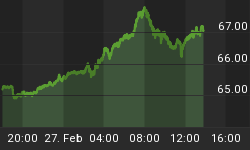After a 3-year drought, crypto bulls were once again basking in the limelight as bitcoin and its altcoin peers went on a parabolic rally beginning late 2020 that saw them take out fresh all-time highs. Bitcoin hit an all-time high of nearly $65,000 in April, and even Wall Street got carried away by the hype, with Guggenheim Globals CIO’s Scott Minerd calling a $400K price target for bitcoin.
But alas, the good times were not to last: Bitcoin crashed spectacularly in May, losing nearly 50% in the space of two months in one of its biggest corrections by the cryptocurrency in recent years.
The market crash was triggered after Beijing started cracking down on the space in mid-May, curbing bitcoin mining due to concerns of excess speculation and warning financial institutions against offering crypto services. Things quickly went to the dogs after the Department of Justice seized $2.3 million in bitcoin in early June as part of its investigation into a ransomware attack that shut down the Colonial Pipeline’s gas pipeline, the nation’s largest. The DoJ seizure helped fuel concerns that U.S. officials could ramp up their crypto oversight and threw a monkey wrench into one of bitcoin’s supposed forté--non-traceability.
And now the regulators have trained their sights on yet another budding corner of the market: Decentralized finance.
Decentralized finance, aka DeFi, is a technology that powers digital currencies like bitcoin and ether by replicating the functions of traditional lenders and exchanges but operates autonomously and across computer networks.
DeFi is a collective term for financial products and services that are accessible to anyone who can use ethereum. DeFi really is any financial service executed using blockchain technologies directly between the parties thus eliminating the need for intermediaries.
The official ethereum website describes DeFi as:
‘‘...an open and global financial system built for the internet age--an alternative to a system that's opaque, tightly controlled, and held together by decades-old infrastructure and processes. It gives you control and visibility over your money. It gives you exposure to global markets and alternatives to your local currency or banking options. DeFi products open up financial services to anyone with an internet connection and they're largely owned and maintained by their users. So far tens of billions of dollars worth of crypto has flowed through DeFi applications and it's growing every day.’’
One of the most popular DeFi options is MakerDAO, a platform that lets users borrow so-called stablecoins in exchange for depositing cryptocurrency-based collateral. Another one is Uniswap, a decentralized crypto exchange that relies on an “automated liquidity protocol” rather than a central orderbook to facilitate transactions.
Both platforms are powered by the ethereum network.
True to its billing, DeFi is an open-source platform that even employs open-source software in its smart contracts. You might think of it as Linux vs. legacy operating systems like Windows, Mac OS and Android.
DeFi services have experienced explosive growth amid the cryptocurrency boom, with more than $50 billion "locked" in ether-based services. Meanwhile, leading centralized cryptocurrency exchanges like Coinbase (NYSE:COIN) now allow their customers to deposit funds and earn returns on DeFi.
Financial regulators are not amused by the DeFi business, and the Securities and Exchange Commission (SEC), the Commodity Futures Trading Commission (CFTC), and the Federal Reserve and the Office of the Comptroller of the Currency are now working to get their arms around the latest segment of the crypto market.
No free lunch
Square Inc. (NYSE:SQ) CEO Jack Dorsey recently announced that the digital payments giant planned to create a new business around an open developer platform “with the sole goal of making it easy to create non-custodial, permissionless and decentralized financial services.
But financial watchdogs are now warning that some DeFi segments are not only illegal under federal law but also pose serious danger to consumers due to less human oversight and accountability, not to mention higher vulnerability to cyberattacks.
CFTC Commissioner Dan Berkovitz has told Politico that he’s ‘‘very concerned there’s none of the reporting, none of the normal pricing and regulatory limits,” while warning that ‘‘there’s no free lunch anywhere in the economic system.”
Of particular concern is the absence of human oversight at DeFi services which is made worse by technical vulnerabilities that have led to attacks that drained millions of dollars from DeFI protocols.
Sen. Elizabeth Warren has been pressing the SEC to rein in DeFi activities, saying that scams have surged on DeFi platforms and citing an estimate from analytics firm CipherTrace that there was $83 million in DeFi fraud during the first four months of this year.
Experts in the past have warned that heightened regulation could easily stunt the crypto markets, and the past few months have clearly proven that.
Thankfully, DeFi is still a relatively small corner of the crypto market.
Bitcoin price rallied to $39,600 on Monday trading after Twitter (NYSE:TWTR) CFO Ned Segal told CNBC on Friday that he backed the idea that bitcoin could become a go-to currency for cross-border transactions.
‘‘We want to hire people all around the world, not just tied to where our offices are. And we also want to help people find their customers on Twitter ... having a decentralized currency will help us do that across borders," he said.
Segal’s comments came hot on the heels of sentiments by Michael Sonnenshein, CEO at Grayscale Investments (NYSEARCA:GBTC), who said on Thursday that SEC’s approval of a Bitcoin ETF "is a matter of when, not a matter of if."
At this juncture, we can surmise that this is going to be a long battle for the crypto market pitting friendly institutions against government regulators fighting to maintain the status quo.
















